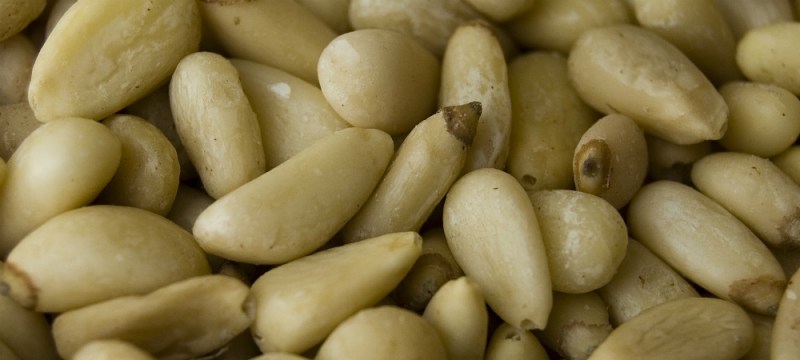Pine nuts are the small and delicate seeds of certain varieties of pine cones. They are subtly flavored with a creamy, slightly sweet taste. Pine nuts are a common ingredient in baked goods such as bread, tarts and cookies, and are a crucial component of pesto sauce. However, there are a few drawbacks to pine nuts, and there are some substitutions that still do the trick without affecting your wallet or your health. Read on to learn about the setbacks pine nuts offer and the alternatives you should choose.
The Negatives Of Pine Nuts

Pine Nuts Are Rare And Expensive
Pine nuts can be hard to find, as they are brought over from Korea and China and the high demand can lead to a shortage in American supermarkets. The low supply of pine nuts also leads to an increased cost, with one pound of pine nuts running about $20.
Bad Mouth Reactions May Make Pine Nuts Undesirable
Pine nuts can also lead to a disorder known as “pine mouth.” This is when the consumption of pine nuts can lead to a disturbance in your taste, leaving everything bitter or metallic, for a couple of days or up to two weeks. If you’re one who gets affected by pine mouth, it’s crucial to look into alternatives to pine nuts.
Pine Nut Substitutes

When you want to make a pesto sauce, but either don’t have or don’t want to use pine nuts, your choices for substitutions are almost endless. As pine nuts do not have a strong flavor, there are several nuts that can work as alternatives. A few common substitutes include:
- Almonds. Soaking raw almonds overnight will remove the skin, which further makes the nut resemble pine nuts in flavor and texture.
- Pistachios are very similar to pine nuts in texture but slightly stronger in flavor. It’s important to find unsalted varieties of pistachios when cooking or baking, and then add salt as necessary.
- Hazelnuts are a common choice when it comes to Italian cuisine, and they can easily serve pine nuts’ purpose in baked goods such as cookies and bread.
- Cashews can serve as a substitute to pine nuts when used in much lower quantities, as they contain a much stronger flavor.
Pesto-Specific Pine Nut Alternatives

If you’re just aiming to make a pesto sauce at home, there are even more alternatives that can serve as pine nut substitutes:
- White beans, which provide the creamy base for a pesto sauce. They’re also mild in flavor, allowing you to customize the sauce exactly to your liking.
- Peanuts give you the crunch and thickness that’s needed to make a creamy pesto, although using them in moderation is important so you don’t end up with an overpowering peanut flavor.
- Roasted edamame beans, which are dried roasted soybeans, offer a crunchy and light alternative to pine nuts. They have many of the same attributes as peanuts when it comes to being a pesto ingredient, but you don’t have to worry about the overwhelming flavor that peanuts have.
Alternatively, if you feel like foregoing pine nut substitutes altogether, Pistou sauce is a great dish to try making. It’s a French sauce that follows the same guidelines as a pesto sauce, but without using pine nuts.
